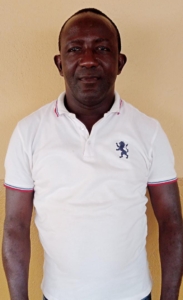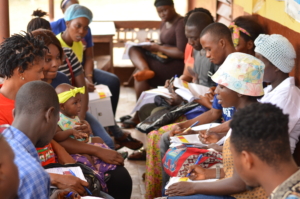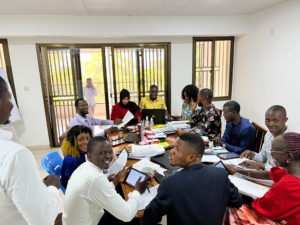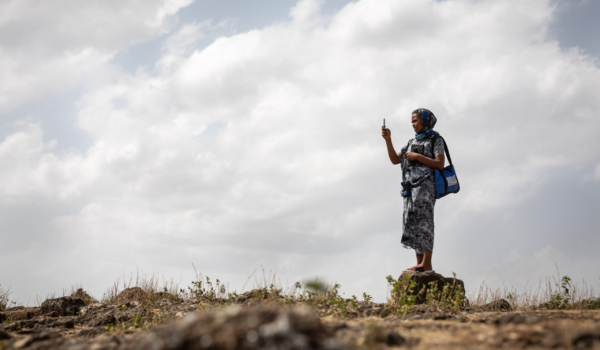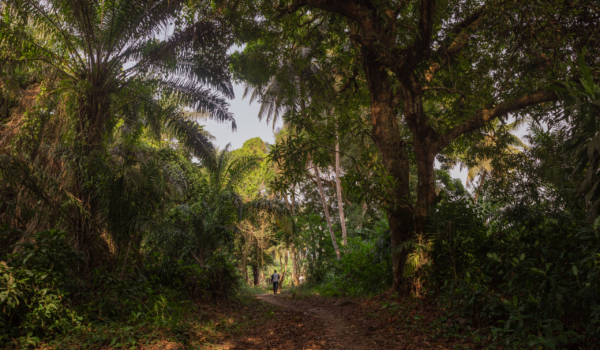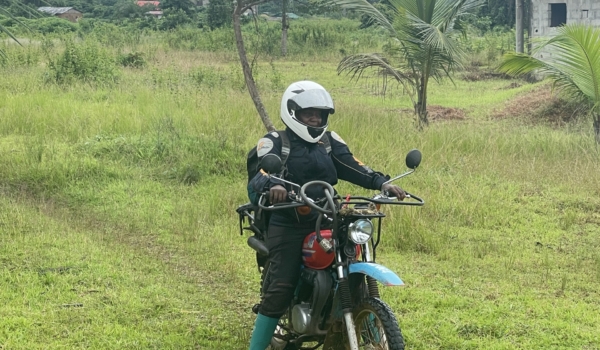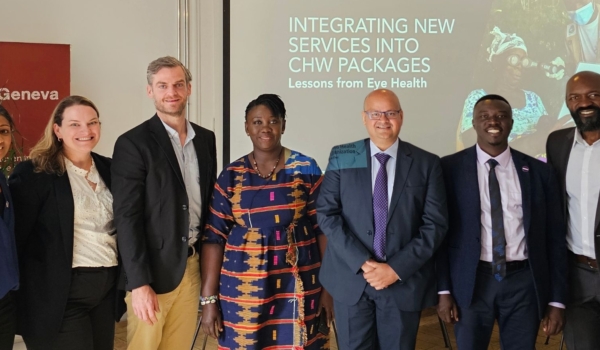Augustine Kargbo has dedicated his career to community health. “I wrote my dissertation on the importance of community health workers in post-natal service,” he says. “Having community health workers in these hard-to-reach areas, after delivery, they can monitor the mother and child. We have these childhood diseases—pneumonia, diarrhea, and malaria—and they can administer treatment or refer. And we have the immunization card with a schedule of when they need to go to the health center. The community health workers will remind the caregivers, ‘Tomorrow, you need to go with your child to take the routine vaccine.’”
Augustine works as a community health worker supervisor and district focal person in Tonkolili, Sierra Leone. “I support the community health workers in their on-the-job training. I communicate with them when there is any health issue they need to act on immediately, like when there is a cholera outbreak, measles, yellow fever. We are working as a team.”
Since the Ministry of Health and Sanitation began recruiting and training a new cadre of community health workers as part of the new national program in 2022, Augustine has seen promising changes. With a revised curriculum and quality assurance officers ensuring greater standardization of training across Sierra Leone’s 16 districts, the new cadre has been trained to deliver an integrated package of primary care services—and community health workers must meet higher standards for education, which has improved thoroughness and clarity in reporting.
Augustine is optimistic about these changes and proud of the role he plays in ensuring community health workers are equipped for success. “We support a good relationship between the community health workers and the primary health units—we bridge the gap,” he explains. “And we support them, giving training in tools that they lack. If there is an issue, I will try to resolve it. If they are out of forms, I will try to replenish them. When we are in supervision, I look at issues of health with the community health workers. They are not working alone.”
But he and the community health workers he supervisors still face significant obstacles. “Sometimes I cannot visit the communities because there is no logistical support—I can’t get a bike,” he says. Supply shortages can also prevent frontline health workers from providing care—and put them in danger. “Let me talk about Ebola, because I am a survivor,” Augustine shares. “At that time I was the lead supervisor of contact tracing. We didn’t have sufficient PPE, so we had a lot of people who were infected. I reported my symptoms, and I survived.”
His bout with Ebola didn’t discourage him from his dedication to bringing care to remote communities—in fact, it only strengthened his commitment. He is convinced that investing in community health workers and the systems that support them is the path forward for Sierra Leone. And he is passionate in raising awareness about what frontline health workers need in order to provide high-quality care at the last mile.
“Community health workers need timely supplies,” Augustine says. “It is good for patients to have treatment within the community, because for some of them the walk is 10 to 15 miles to the facilities. It’s important that community health workers have the drugs and other things they need.”
Supervisors, too, have urgent needs. “Paper reporting is too cumbersome. If you have electronic forms, you can just download the form and report easily. But right now, talking to you, I am using my own data—we don’t have internet, and my computer is very old,” he explains. “If I have the supplies I need, it will make my job easier. If I can see the forms, I can see the gaps—but sometimes we have no support.”
Despite the challenges, Augustine believes in the power of community health to enact change—and he is hopeful that continued political will and investment can provide the crucial support that will maximize this potential. “I just want to say that if we have effective tools and communication, that will make a stronger system,” he says. “If we have a very good community health system, that will reduce our child and maternal mortality.”

